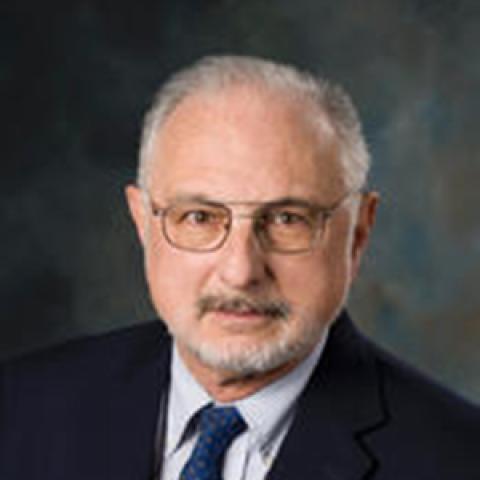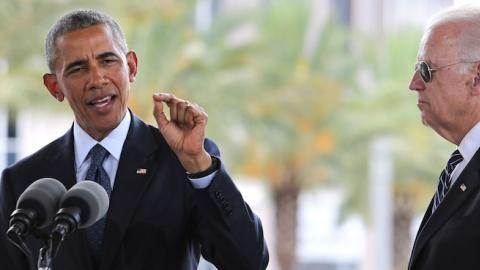In his June 14 remarks following the terrorist attack in Orlando, President Obama reassured us: He has known all along that when it comes to terrorism, the enemy we face is none other than "radical Islam."
Responding to criticism of his refusal to use the term, he stated, "Since before I was president, I've been clear about how extremist groups have perverted Islam to justify terrorism. As president, I have repeatedly called on our Muslim friends and allies at home and around the world to work with us to reject this twisted interpretation of one of the world's great religions." When his administration termed the Fort Hood shootings "workplace violence," Obama knew better. When the president himself said "ISIL is not Islamic," he knew that he meant not that ISIL had nothing to do with Islam, but that it was dedicated to a form of Islam that is considered (and reasonably so) deviant and perverted.
All of which enables us to pass on to the more serious issue: does the president's choice of which words to use and avoid have real world consequences? Never one to pass up the opportunity to bash a straw man, Obama carefully picked his examples to argue that using the "radical Islam" label wouldn't accomplish anything. "Would it make ISIL less committed to trying to kill Americans?" he said last week. "Would it bring in more allies? Is there a military strategy that is served by this?"
Of course, the answer to each of these questions is "no." But Obama's sleight of hand ignores the real issue—and the area of our greatest failing in addressing terrorism—which is how to weaken the appeal of radical Islamist ideology, or what the President referred to as the effort "to reject [ISIL's] twisted interpretation of one of the world's great religions."
The exact criticism is that Obama has ignored this entire aspect of counterterrorism. Despite his claim that he has "repeatedly called on our Muslim friends and allies at home and around the world to work with us," the administration has shied away from this ideological effort. It has not, for example, sought mechanisms to provide financial or other support to those "Muslim friends and allies" or to facilitate their networking with each other and the propagation of their views. In addition, as Obama himself noted in his recent interview in the Atlantic, one of our most important Muslim allies is, in this regard, part of the problem rather than part of the solution.
In the late 1940s, the U.S. embarked on a major ideological campaign to counteract Communism. It involved a variety of efforts, among them broadcasting, publishing, people-to-people exchanges, participation in international meetings, and financial and other support for anti-Communist voices in Western Europe and elsewhere. Would this effort have been imaginable had the president of the United States refused to say that we were fighting Communism?
Obama's post-Orlando speech reasonably emphasizes the various military and economic steps that are being taken to weaken and ultimately defeat ISIL. But despite his statement that "our mission is to destroy ISIL," this is a necessary, but far from sufficient, condition for a successful counterterrorism effort. During Obama's first term, the constantly repeated official position was that we were at war, not with radical Islamism (or any similar description of our ideological foe), but rather (meaning, in this context, "only") with al-Qaeda. With the killing of Bin Laden in 2011, this effort was declared more or less victorious.
But as the rise of ISIL made clear, the (perhaps temporary) subduing of al-Qaeda didn't get at the root problem. Similarly, we could succeed in our efforts against ISIL and not foreclose or even hinder the emergence of some new and equally dangerous manifestation of the same ideological impulse.
The president knows all this but seems paralyzed by the fear that, if we define the problem as having anything at all to do with Islam, the enemy will be able to capitalize on it by declaring (as they do in any case) that the United States, or the West as a whole, is at war with all Muslims all over the world. This is indeed a danger, and there is no doubt that we will have to choose our words, especially those we use to designate the enemy, with care.
The term "radical (or extremist) Islamism" is probably the most accurate term, if one understands that "Islamism" refers to a specifically political ideology. This ideology calls for the replacing the current governing systems of Muslim countries with an ideal form of government that it claims is based on the practices of the Prophet and his companions in the first century of Islam. In its ambition to totally revamp society as a whole, and its willingness to use abhorrent means to do so, it is comparable to the totalitarian ideologies of the 20th century. On the other hand, the distinction between "Islamism" and "Islam" may be too subtle to be maintained in political discourse. So, debate on this issue is certainly in order.
But whatever phrase we finally settle on, we need to develop ways to provide support for the majority of Muslims worldwide who reject this ideological program. This will require being more open and direct in speaking about the challenge we are facing.

















